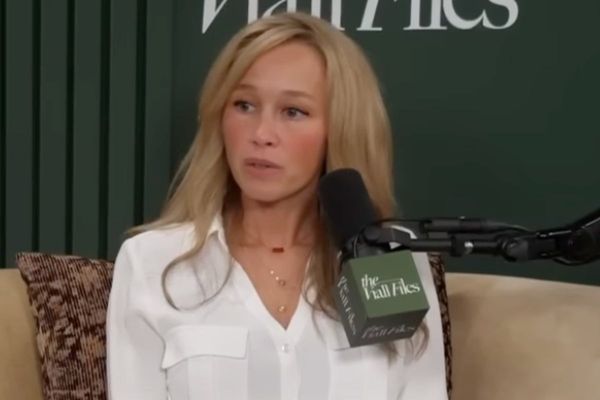
“One could make it good,” says Monty Don, surveying Glenn and Zoe’s wreck of a back garden, “but not using anything that’s here.” One of the pleasures of Big Dreams, Small Spaces (BBC2) is that the viewer is able to project on to Don a character of immense psychological transparency, a man whose veneer of affability cannot quite hide his boundless contempt for other people’s choices. He’s all smiles and encouragement, but it’s hard to believe any of these gardeners wakes up, looks at the calendar and says, “Oh, great! Monty’s coming today!”
To say that Glenn and Zoe’s garden slopes is to understate the matter; it falls away so vertiginously that the camera had to fisheye its proportions into the frame. They show Don their plans for some new beds and a raised decking area. “My initial reaction,” he says, “is that it’s not ambitious enough.” I think he means they should sell their house and find somewhere flatter.
Meanwhile, environmental consultant Nighat had taken on what appeared to be London’s least desirable allotment, an overgrown woodland tip, uncultivated for 30 years - a brownfield site, basically. She wanted to keep bees on it. Don was outwardly approving, although I thought I saw something in his eyes suggesting she would be better off seeking planning permission for a scaffolding yard. She asked him what was the best time to prune trees. “The simple answer is about six months ago,” he says.
Big Dreams, Small Spaces is not like a BBC makeover show of old, where a wisecracking team of experts was put to work setting things right on a tight timetable. These gardeners are left to get on with it, on their own dime, with Don turning up only intermittently to chide them. I’m sure this isn’t just a budget-slashing exercise, but a deliberate choice designed to show that the hard work of gardening is its own reward. As a sometime gardener, I know this is true, for about half an hour. It also makes practical sense: Don has six of these programmes to get through, each featuring two gardens, and only a single growing season to film it all. That’s a lot of flying visits. He must have spent all summer in his car.
As infrequent as his interventions are, he’s always right, which must be maddening. Nighat had to go back and buy more plants, just as he had warned she would have to. He graciously conferred his blessing on the kinked path Glenn and Zoe had added in his absence, with a smile that hinted they would rue the day they messed with his design.
Along with some friends and neighbours, Don got stuck in helping to install their retaining wall system, about which he had already expressed scepticism disguised as curiosity. “It’s not long before Monty discovers a problem,” said the voiceover. It’s never long before Monty discovers a problem – in this case an immovable concrete slab just beneath Glenn and Zoe’s thin, spent soil. Their dream terrace just got a little bit shallower.
Things turned out all right in the end, of course: all the gardeners seemed happy with their little plots, and Monty gave his heartfelt approval in a manner that suggests he was more disappointed than angry. I’m sure this series will inspire gardeners all over Britain to embark on their own badly compromised projects. Me, I’m going to continue to enjoy it for all the wrong reasons, while lying very still.
In the fifth instalment of The Brain with David Eagleman (BBC4), the engaging American neuroscientist investigated the extent to which the brain is designed to function in conjunction with other brains. It’s not so much that you want to hang out with people, but that you need to. “To the brain,” said Eagleman, “social rejection is so meaningful, it hurts.”
Most of his points were illustrated with recreations of famous neurological experiments, often all the more revealing for their simplicity. One experiment showed that people who have had Botox treatments aren’t just bad at displaying emotions on their frozen faces; they’re also bad at interpreting emotions, because they can’t unconsciously mimic the faces they see, thereby “trying on” the feelings of others. Along with wrinkles, Botox suppresses empathy.
The most remarkable story concerned John, a former Kiss roadie who was diagnosed with Asperger’s syndrome as an adult, after decades spent keeping himself to himself. After participating in an experiment targeting part of his brain with transcranial magnetic stimulation, he found he was able to read subtle emotional cues for the first time. “I had no idea there were these messages emanating from other people,” he said.
We’re all communicating hidden emotions with every subtle flicker of our faces. It’s not just Monty Don.







